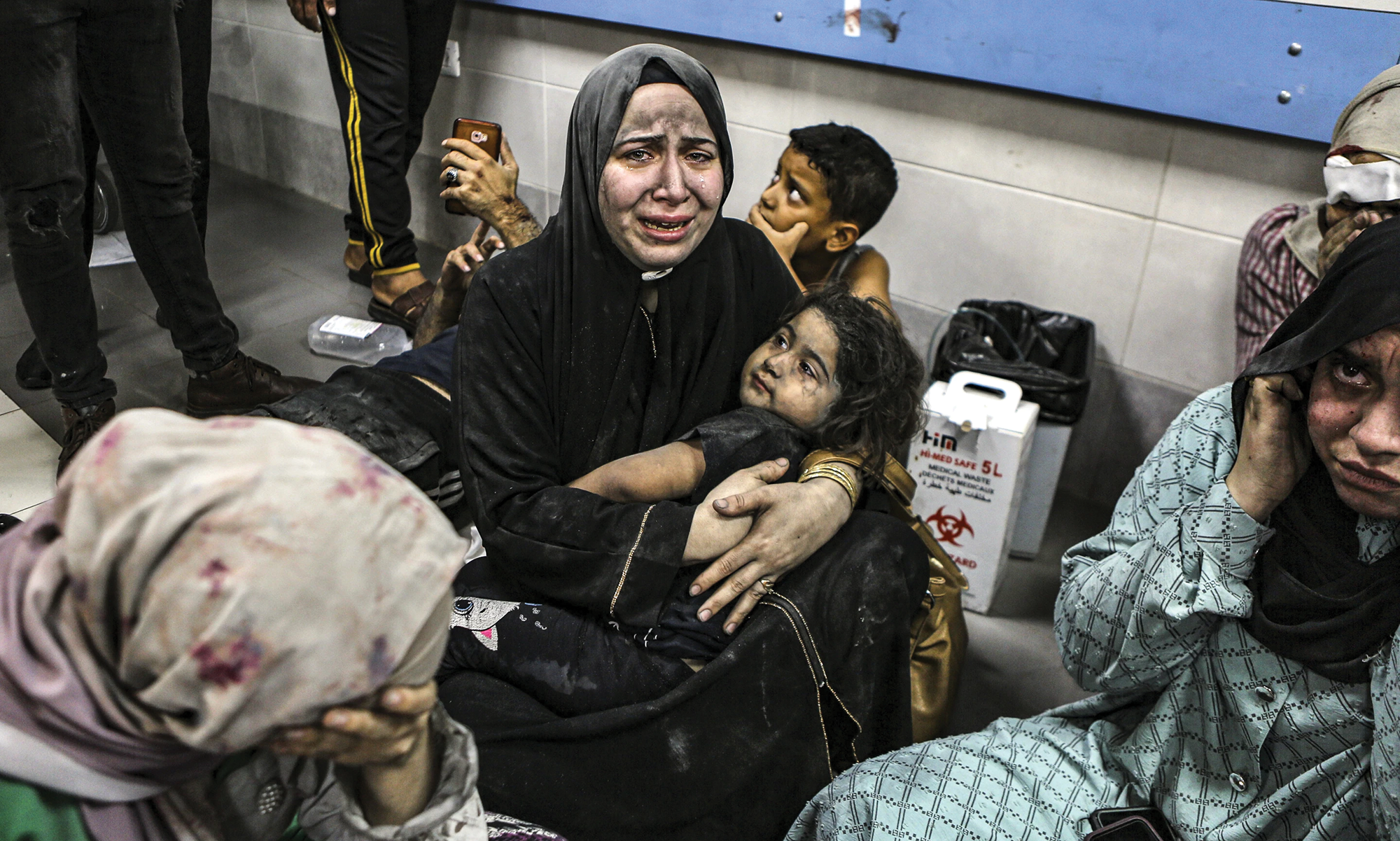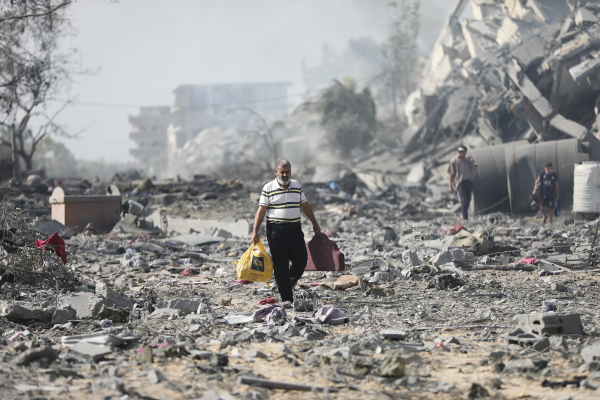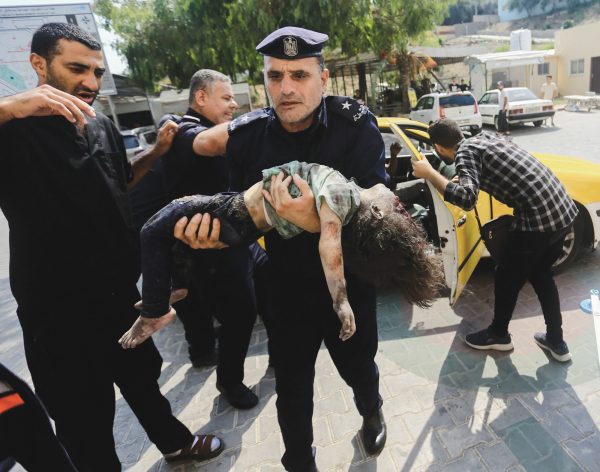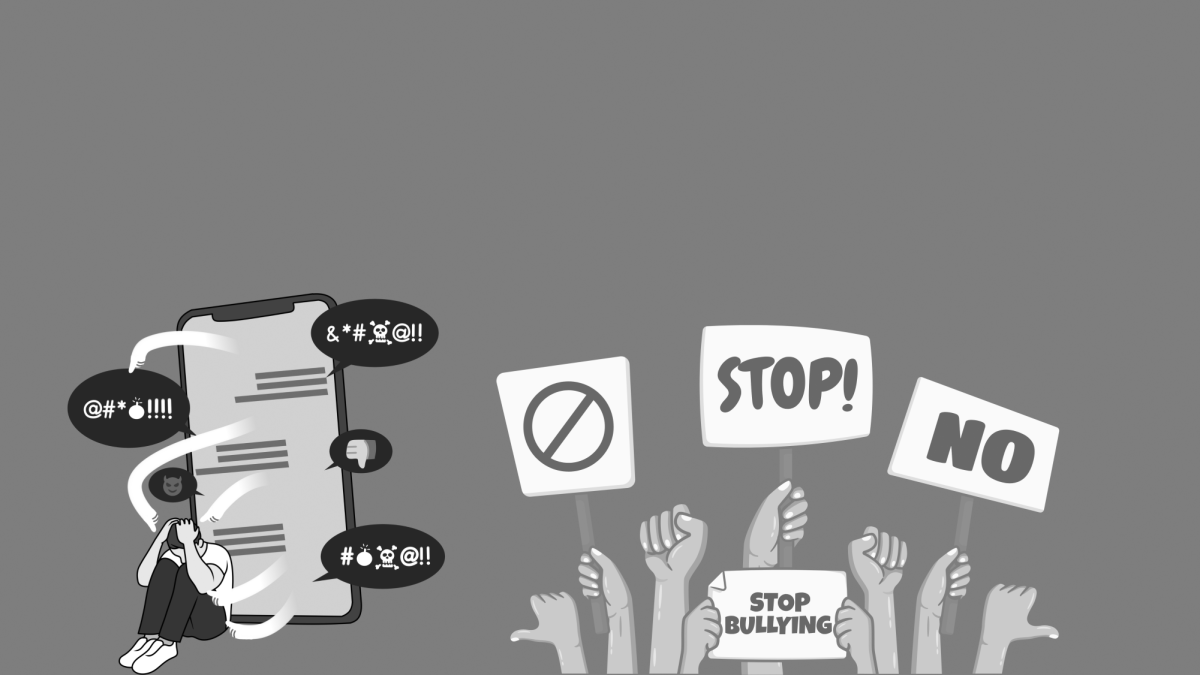
The Israel-Hamas conflict has worsened, causing humanitarian concerns as the violence continues. Recent developments highlight the situation unfolding in the region.
In Gaza, the population of roughly 2.3 million people, half of whom are children, faces extreme shortages of food, clean water, electricity and fuel due to an over two-week-long blockade imposed by Israel.
This blockade was partially lifted after the U.S. called for a “continued flow of assistance.”
The U.S. is urging Israel to prioritize negotiations for the release of 222 hostages held by Hamas and the distribution of aid before launching a ground invasion in Gaza.
However, the slow progress of humanitarian aid delivery is a concern.

While some aid trucks have crossed the Egyptian border into southern Gaza, it’s still far from enough to address the severe humanitarian crisis.
The U.N. estimates that at least 100 aid trucks daily are needed to meet basic requirements. The CEO of the Egyptian Food Bank, Mohsen Sarhan, notes that challenges remain in terms of the Palestinian side’s capacity to receive these trucks.
Egyptian President Abdel Fattah el-Sisi is reportedly working behind the scenes to mediate a ceasefire alongside the French President Emmanuel Macron.
With an ever-rising death toll, over 5,000 Palestinians have been killed, including more than 2,000 children. Israel disputes these numbers, attributing some casualties to errant Palestinian rockets.
The threat of a ground invasion remains, with Israel urging residents in northern Gaza to evacuate. Meanwhile, violence has spilled over into the West Bank, where clashes have intensified. Protests there are growing, with some demonstrators critical of Israel and U.S. support.
On Oct. 19, President Joe Biden delivered a public address from the Oval Office in which he emphasized the necessity of American engagement in global conflicts.

The president stressed that backing Israel and Ukraine remained crucial for U.S. national security. “History has taught us that when terrorists don’t pay a price for their terror, when dictators don’t pay a price for their aggression, they cause more chaos and death and more destruction,” Biden said, adding “They keep going, and the cost and the threats to America and to the world keep rising.”
The president reiterated his commitment to supporting Israel’s military while also mentioning his call to Prime Minister Benjamin Netanyahu, urging the protection of civilians in Gaza amid the ongoing conflict.
“As hard as it is, we cannot give up on peace. We cannot give up on a two-state solution,” Biden said. “Israel and Palestinians equally deserve to live in safety, dignity, and peace.”
On Oct. 20, Hamas released two American hostages, Judith Raanan and her daughter Natalie, kidnapped from Israel Oct. 7 and held in Gaza. The release involved negotiations be- tween Hamas and Qatar’s government.
“From the earliest moments of this attack, we have been working around-the-clock to free American citizens who were taken hostage by Hamas,” Biden said. “We will not stop until we secure the release of those who are still being held.”
The conflict’s human toll is tragic, while the situation remains complex and highly sensitive. Efforts to ease the suffering of civilians and reach a lasting resolution are paramount, but the path to a peaceful resolution remains uncertain.






